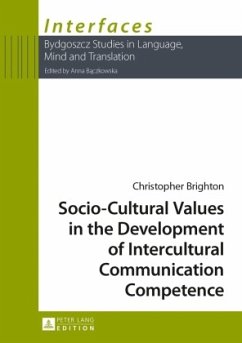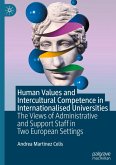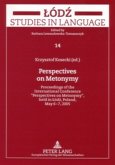How socio-cultural factors influence the development of Intercultural Communication Competence is an essential part of developing the skills to work and interact with a rapidly globalizing world. Building upon the work of Edward Hall, Geert Hofstede and Stella Ting-Toomey, this book explores the role in which experience, family and other social aspects play in creating an individual's ICC skills. In this work, a model of six ICC skills allows for the examination of the impact of Polish national culture on socio-cultural values of Polish students in the three mutually dependent dimensions of politics, education and family. The empirical data present clear conclusions and indications of how specific factors are relevant or irrelevant in helping to construct ICC. These findings bear implications for trainers and researchers in approaching the issue of developing intercultural competences.
Bitte wählen Sie Ihr Anliegen aus.
Rechnungen
Retourenschein anfordern
Bestellstatus
Storno








